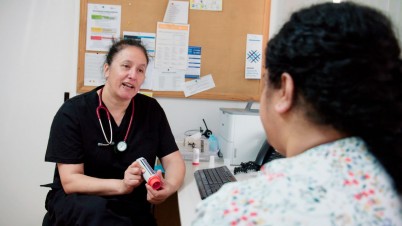This October, the Health Research Council of New Zealand (HRC) celebrates 30 years of funding high-impact research which has contributed to saving thousands of lives in Aotearoa and across the globe.
The Health Research Council is the government's principal funder of health research, and since 1990 has invested approximately $1.7 billion in research aimed at making a difference to New Zealanders’ lives.
From identifying the first known gene for fatal inherited gastric cancer through to leading the development of the first practical treatment for preventing brain damage in babies, HRC-funded research has spawned multiple breakthroughs and changed services and practice in almost every area of health.
The HRC has also supported the careers of some of New Zealand’s most distinguished scientists, academics and clinicians, many of whom are guiding our country’s response to the current COVID-19 pandemic with world-leading strategies that have kept our infection rates low and deaths to a minimum.
“Decades of investment in health research has given us the evidence-base and knowledge to draw on, in our hour of need,” says HRC chief executive Professor Sunny Collings.
“Now more than ever, New Zealanders are seeing the direct benefits of having a strong and capable health research workforce.
“It’s essential to support research careers if we’re to retain this expertise and talent within New Zealand and to enable the pursuit of meaningful discoveries that benefit every one of us,” she says.
The HRC is particularly proud of its commitment to Māori and Pacific health researchers whose work over the past three decades has helped shape and influence health policies while addressing inequities and social disparities.
Building and sustaining New Zealand’s indigenous health research workforce has long been a focus for the HRC, and now approximately 16% of researchers working on HRC-funded research identify as Māori. “This is only the beginning of the journey towards a research workforce where people aren’t excluded, which is more diverse and will enhance the quality and value of research conducted in this country,” says Professor Collings.
Over the month of October, the HRC will showcase just some of the research highlights that have impacted the lives of New Zealanders, including research in the following areas:
- Better housing and improved health outcomes for children living in cold, damp homes.
- New Zealand’s response to COVID-19 and preparing for future infectious diseases.
- Research into maternal and neo-natal treatments that has saved thousands of babies from long-term harm and reduced infant deaths.
- Game-changing asthma research that has changed practice worldwide.
- Research with Māori families to identify cancer risk and improve the screening and prevention of cancer.
- Māori health research that has improved health services and is addressing inequities in health outcomes.
- Life-course research into Pacific Island children that has shaped and influenced health policies and practice.
As part of the 30-year milestone, New Zealand’s leading researchers in these fields will discuss the breakthroughs so proudly made here in Aotearoa New Zealand, and how these findings have translated to healthcare services and practices that benefit us all.
